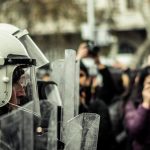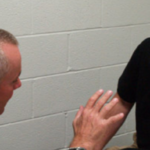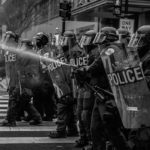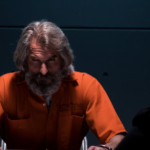Video recording is legal if you do not interfere with a lawful police investigation or conduct.
Although it is legal to video record police in public, it is not lawful to interfere with their official duties. When police arrest someone for merely videotaping, a defense lawyer will work to get charges dismissed.

Police are public servants; they should also accept that their conduct must be lawful.
For the criminal justice system in America to work, police and prosecutors must do their jobs ethically and legally. If officers act lawfully and responsibly, why would they object to video recording the police?
Police officers, like anyone else, are probably very uncomfortable with being photographed or video recorded while at work. This being said, police officers are public servants charged with performing official duties and are responsible for conducting their jobs lawfully. Some police officers break the law and violate the civil rights of citizens. On the other hand, some defendants lie and falsely claim that officers have acted improperly or illegally. If every investigation were videotaped, there would be little doubt about the credibility of an investigation or an officer’s observations of criminal activity. Despite the repeated use of video recordings as evidence to secure convictions, police organizations and unions strongly object to people photographing or video recording the police.
Why does the public have a legitimate interest in video recording police conduct?
The public’s interest in video recording police conduct is legitimate and necessary. It serves as a cornerstone for transparency, accountability, and trust in our justice system. In an era where incidents can be captured and shared in real-time, the ability for citizens to record law enforcement officers while on duty is a powerful tool in safeguarding civil liberties and ensuring that justice is upheld.
First and foremost, video recordings of police conduct provide an objective account of interactions between law enforcement and civilians. This unbiased perspective is invaluable in disputes where the parties’ accounts may differ, offering clarity and contributing to fair adjudication. Such transparency not only aids in the pursuit of justice but also fosters a sense of trust between the community and those sworn to protect it. When citizens see firsthand how law enforcement operates, it demystifies police procedures and reduces misconceptions.
Furthermore, the widespread availability of video evidence has been instrumental in highlighting issues of police misconduct and systemic problems within law enforcement agencies. By bringing these issues to light, video recordings have spurred public debate, policy reform, and institutional changes aimed at improving policing standards and enhancing the protection of human rights. This scrutiny is essential in a democratic society, where accountability is critical to maintaining the integrity of public institutions.
Moreover, video evidence has increasingly become a critical component in legal proceedings, offering definitive proof that can exonerate the innocent and ensure that the guilty are held accountable for their actions. For criminal defense lawyers, such recordings can be pivotal in building a defense, challenging the prosecution’s narrative, and protecting the rights of the accused.
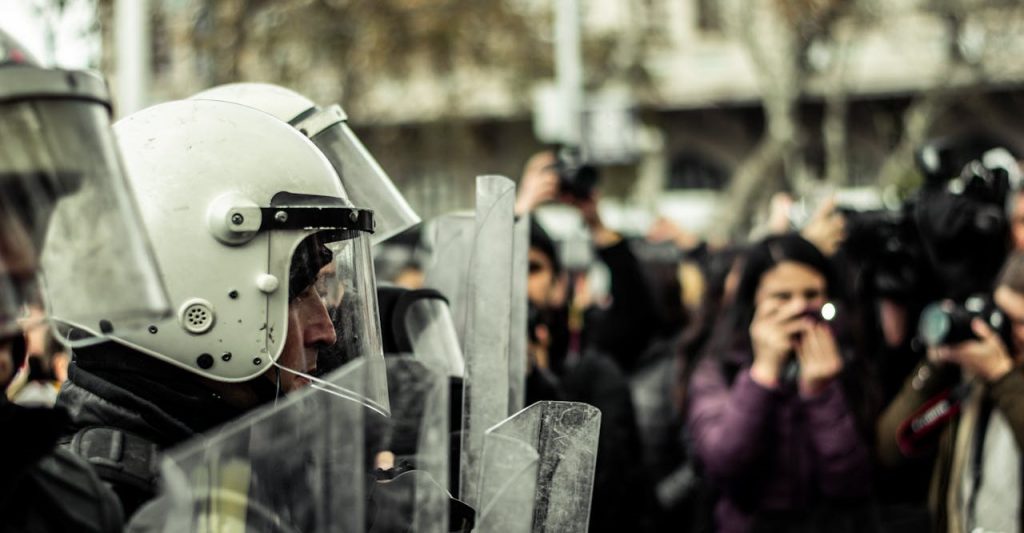
Constitutional Right Protected by the First Amendment
In two recent cases, the United States Court of Appeals for the 3rd Circuit decided the court made it clear that photographing and video recording police officers in public is protected by the First Amendment. In the first case, a woman recording the police during a protest was restrained by police and forced to stop recording. In the second case, a man was arrested, prosecuted, and convicted for filming police officers breaking up a house party.
In each case, the United States District Court judges ruled against men and women. The courts ruled they engaged in “conduct” and not “expressive conduct.” Essentially, the judge found that photographing or videotaping is not, in and of itself, expressive, so it is not protected by the First Amendment’s freedom of speech clause. The Federal Court of Appeals disagreed.
In its ruling, the Court of Appeals found that the First Amendment protects photographs and video recordings. That protection would have little meaning if the Constitution did not also protect the production or creation of pictures or videos.
The appeals court went on to say how essential the functions of the police are and that their role in the protection of the community is critical and irreplaceable; however, they are carrying out public functions, and they have no alternative but to accept when bystanders are recording their actions. The court also noted that the recordings stand to benefit citizens and the officers themselves.
This decision by the 3rd Circuit is critical to protecting civil liberties and the proper administration of justice. The defense lawyers with LEWIS & DICKSTEIN, P.L.L.C. have achieved dismissals, acquittals, and charge reductions for countless clients over the past several decades based on audio and video recordings. If you face charges in Michigan, including charges related to video recording the police, we can help!
A Case Example of When Criminal Charges Are Dismissed Due to a Video Recording of the Police
In criminal defense, evidence is king, and sometimes, the most compelling piece of evidence comes from the lens of a camera. A recent case handled by LEWIS & DICKSTEIN, P.L.L.C., Michigan’s premier criminal defense law firm, exemplifies the profound impact a video recording of the police can have on legal proceedings, particularly when it captures police conduct. This case is a powerful testament to the firm’s unique team approach and commitment to leveraging all available resources to defend the rights of its clients.
The case involved a client who faced serious allegations after a traffic stop escalated into a physical altercation with law enforcement officers. The charges were severe, and the potential repercussions threatened to derail the client’s life. However, the situation took a pivotal turn when a video recording of the incident, captured by a bystander’s smartphone, came to light. This video contradicted the initial reports provided by the officers involved and offered a clear, unbiased account of the events as they unfolded.
Upon obtaining the video, the team at LEWIS & DICKSTEIN, P.L.L.C. sprang into action, utilizing their collective expertise to analyze the footage meticulously. Armed with this compelling evidence, LEWIS & DICKSTEIN, P.L.L.C. approached the prosecution with a strong case for dismissing the charges against their client. The video recording not only demonstrated the client’s lack of aggression but also raised significant concerns about the credibility of the officer’s account of the incident. Faced with irrefutable evidence, the prosecution had no choice but to concede, resulting in the dismissal of all charges against the client.
This case underscores the critical role that video recordings can play in defending against criminal charges. It highlights the importance of a comprehensive defense strategy integrating legal acumen with technological resources. It also exemplifies LEWIS & DICKSTEIN, P.L.L.C.’s unwavering commitment to our clients and their ability to achieve extraordinary results. By harnessing the power of a video recording of the police and adopting a collaborative team approach, the firm not only protected an individual’s rights and freedom but also reinforced the importance of accountability and transparency in law enforcement.

Aggressive, Fearless, and Effective Felony and Misdemeanor Representation
If you are accused of a felony or misdemeanor offense and want the best possible legal representation, call LEWIS & DICKSTEIN, P.L.L.C. We will take the time to speak with you about your case and answer your questions. Using a unique team approach, we have earned a well-known reputation for achieving results often unattainable by other lawyers. Our team is comprised of former prosecutors, lifetime defense lawyers, circuit and federal law clerks, and other experts who all work together to achieve extraordinary results. With or without a video recording of the police, our team will do whatever it takes to find compelling evidence to support our client’s defense. Call us for a free consultation to discuss the particulars of your case. Together, we will develop a winning strategy!
Call us today at (248) 263-6800 for a free consultation or complete an online Request for Assistance Form. We will contact you promptly and find a way to help you.




